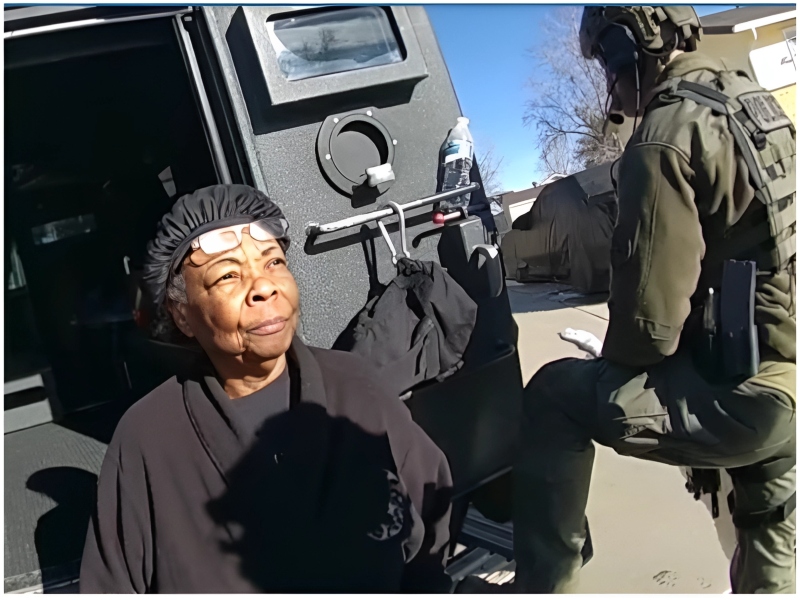In a significant legal development, a Colorado woman, Ruby Johnson, has secured a monumental victory in her lawsuit against two police officers following a wrongful SWAT team raid on her home.
The jury’s verdict, amounting to $3.76 million, marks a crucial milestone in holding law enforcement accountable for violations of state constitutional rights.
The verdict, announced by the American Civil Liberties Union (ACLU) of Colorado, which provided legal representation to Johnson, was delivered late Friday in a state court in Denver.
The lawsuit stemmed from a distressing incident where a SWAT team, acting on erroneous information, forcefully entered Johnson’s residence while pursuing a stolen truck.
According to court documents, the search warrant was obtained based on flawed data provided by Detective Gary Staab, who failed to disclose the imprecise nature of the location provided by the Find My app, which led police to Johnson’s home.
Johnson, a retired U.S. Postal Service worker and grandmother, recounted the traumatic experience of being confronted by heavily armed officers while she was in her bathrobe, having just emerged from the shower.
During the raid, police utilized excessive force, including the use of a battering ram to access Johnson’s garage and causing damage to her property, including the vandalization of personal belongings.
The lawsuit, brought under a provision of a police reform bill passed in 2020 following the murder of George Floyd, represents the first significant case to go to trial under the new law.
The legislation enables individuals to sue police officers in state court for violations of their state constitutional rights, circumventing the legal hurdles posed by federal court, including qualified immunity.
While the Denver Police Department, not directly implicated in the lawsuit, declined to comment on the verdict, Johnson’s attorney emphasized the profound psychological and emotional toll inflicted on his client.
For Johnson, the verdict symbolizes a vital step towards justice and accountability, highlighting the imperative of police reform and the protection of individual rights.
The outcome of this case underscores the ongoing efforts to address police misconduct and uphold the principles of fairness and equality under the law.

